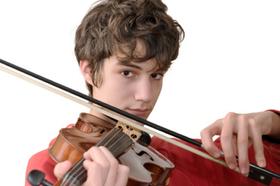I asked William Ellis, Associate Headmaster for Enrollment Management, Director of Admission, and Director of Financial Aid at The Kiski School in Saltsburg, Pennsylvania, to discuss educating boys. Bill very kindly offered the following essay in response to my request. ~Rob Kennedy.
Boys’ residential college preparatory schools are more important now than ever before. Statistics, surveys, and polls all show that boys’ achievement is not as strong in high school as their female counterparts. Women outnumber men in four-year colleges by a nearly three-to-two ratio that has been growing since the late 1970s. Some would say a boy crisis in education is brewing or already here. I was at my niece’s graduation from a large, highly competitive university where anecdotally the Chancellor was a woman, the keynote speaker was a woman, the president of the senior class was a woman, three of the four honorees were women and an amazing 65% of the graduates were women. Having been raised in a house of four strong sisters and a superb Mom (Dad and I were outvoted often), believe me, I am proud of all of the strides made by women since I was a boy, and I do not think their journey is complete by any means.
Having spent the first 25 years of my career at independent coed boarding schools, I have had a front-row seat to this phenomenon, of consistently outperforming the boys. My colleagues used to ask me “What’s wrong with the boys?” At first, I thought it was an admission problem. (Full disclosure, I am an admission director and have served in that role since 1983) Were we not finding and admitting good boys? But as time marched on, I had an epiphany: nothing is wrong with boys. What’s wrong is we are not meeting boys’ unique needs and providing them with an appropriate environment to enable them to be successful.
We know that boys learn differently than girls. With a boy crisis in education upon us, it begs the question: Ophelia seems to be thriving, but what about Johnny?
Becoming a leader in educating boys
Ten years ago, I became the Director of Admission at The Kiski School, a small, all-male boarding school near Pittsburgh, PA. The school resisted going coed during the difficult times in the 1970s. During the recession in 2008, Kiski not only maintained full enrollment but actually thrived. More recently, families with boys are beginning to see more clearly what we see with this current boy crisis. Our mission and commitment to help prepare boys for college and life has never wavered.
Kiski has doubled down on the concept of the all-male environment and has become a leader in educating boys. Our results are a reflection of our commitment. Attrition has been in the single digits. A huge percentage of our graduates are four-year boys. Over 90% are accepted at the top 100 schools as ranked by US News and World Report. They receive, as a class of around 65 graduates, millions of dollars in merit scholarships to college. Last but not least, they are happy in their community, feel safe and cared about by their teachers, and are appreciated for their gifts and talents. Boys can be boys here without being criticized for it. Sure, we have our share of bumps, bruises, and broken windows. There might even be a lacrosse ball whirling down the hallway despite repeated pleas on the part of our dorm masters to “take it outside,” but at the end of the day, visitors remark over and over how impressed they are with Kiski and how the boys seem so happy here.
This short video illustrates on teacher's adaptation to teaching boys.
Reaching Boys...Teaching Boys
How do we do it? It’s easy to say, “We are good with boys, always have been, and though I don’t know exactly why, we just are,” but Kiski faculty members are able to articulate with the intention just what it means to teach in a boys’ school. In 2007, Kiski was one of two schools asked to participate in a pilot study that formed the basis for noted brain specialist Michael Reichart and Richard Hawley’s book Reaching Boys, Teaching Boys. The formula is simple, but the implementation is challenging, time-consuming, and labor-intensive. We also do not assume that any of our new teachers know how to teach boys, even if they are veterans in the classroom. New teachers here are introduced to our philosophy and given real examples to follow. We mentor them all along the way so that they can teach boys in the most effective way possible.
A welcoming environment
So here it is: We employ best practices for teaching boys by using boy-centric teaching methods to create classrooms that are lively and dynamic (louder than what most teachers are used to) and creating a school environment that is welcoming and engaging for young men in our care. Welcoming is critical because we want our boys to feel appreciated and know that our classrooms are places where they can be themselves. They are constantly engaged. This means that the atmosphere triggers the boy's brain in a way that gets him mentally and physically involved in the learning process. All of that is fine and good, but we up to it one more notch by employing project-based learning in every discipline, every class, and every day. Project-based learning is not just having our boys do projects to check off a box. Project-based learning is not using the project to enhance the subject. Project-based learning at Kiski is choosing projects that, as a result, teach the concept. By doing projects from the beginning, the boys discover the questions first. This empowers them to search for and be curious about the answers on their own. This allows them to think creatively, work collaboratively, and implement innovations. What is the value in all of this? These are exactly the 21st-century skills needed to thrive in the world they are about to enter.
Preparation for life
The Kiski mission is to prepare boys for college and life. We take the second part as seriously as the first. It is not enough to raise smart, high-achieving boys who will be accepted to top colleges. We need to raise moral boys who are ready, willing, and confident in their ability to make the world better. Boys at Kiski are polite, poised, and comfortable with adults. They will stand when you enter a room, look you in the eye, and give you a warm firm handshake. They are servers of the community, they are engaged in the sustainability of our world and they have a commitment to honor. When they finish here, there is confidence about them...not braggadocio, but confidence. They are proud of their work, humble about their achievements, prepared for the next level, and ready to make a difference in their world..
A transformative- life-changing experience
The boy crisis in education is real, quantifiable, and has the potential, if not addressed, to have wide-ranging social and economic consequences in the near future. At Kiski, we believe we have found a solution. This is a place built for boys and their successes, and when an incoming freshman steps foot on campus for the first time, he won’t just get an education, he will receive a transformative, life-changing experience that will last forever.
Questions? Contact us on Facebook. @boardingschoolreview
















































